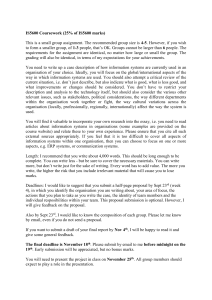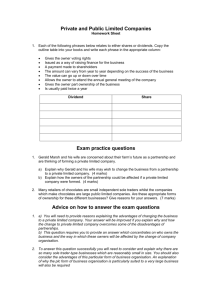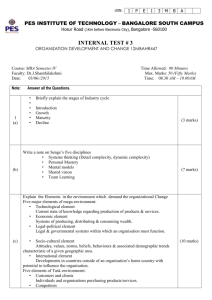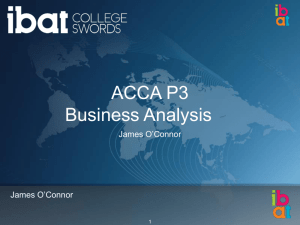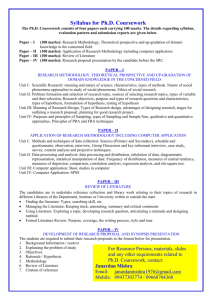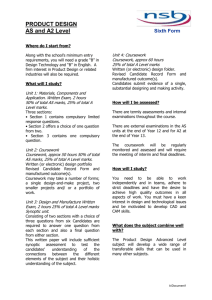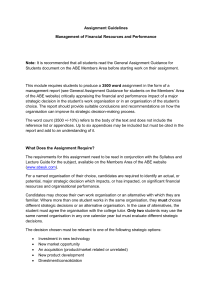IS5600 Coursework Ideas - Department of Information Systems
advertisement
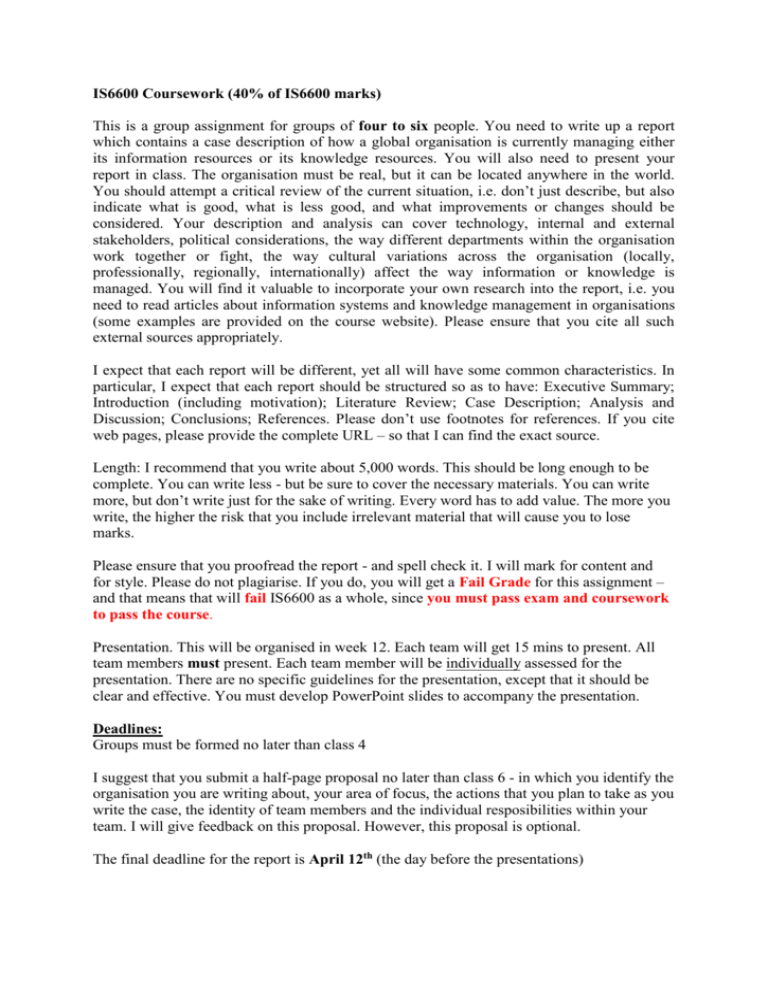
IS6600 Coursework (40% of IS6600 marks) This is a group assignment for groups of four to six people. You need to write up a report which contains a case description of how a global organisation is currently managing either its information resources or its knowledge resources. You will also need to present your report in class. The organisation must be real, but it can be located anywhere in the world. You should attempt a critical review of the current situation, i.e. don’t just describe, but also indicate what is good, what is less good, and what improvements or changes should be considered. Your description and analysis can cover technology, internal and external stakeholders, political considerations, the way different departments within the organisation work together or fight, the way cultural variations across the organisation (locally, professionally, regionally, internationally) affect the way information or knowledge is managed. You will find it valuable to incorporate your own research into the report, i.e. you need to read articles about information systems and knowledge management in organisations (some examples are provided on the course website). Please ensure that you cite all such external sources appropriately. I expect that each report will be different, yet all will have some common characteristics. In particular, I expect that each report should be structured so as to have: Executive Summary; Introduction (including motivation); Literature Review; Case Description; Analysis and Discussion; Conclusions; References. Please don’t use footnotes for references. If you cite web pages, please provide the complete URL – so that I can find the exact source. Length: I recommend that you write about 5,000 words. This should be long enough to be complete. You can write less - but be sure to cover the necessary materials. You can write more, but don’t write just for the sake of writing. Every word has to add value. The more you write, the higher the risk that you include irrelevant material that will cause you to lose marks. Please ensure that you proofread the report - and spell check it. I will mark for content and for style. Please do not plagiarise. If you do, you will get a Fail Grade for this assignment – and that means that will fail IS6600 as a whole, since you must pass exam and coursework to pass the course. Presentation. This will be organised in week 12. Each team will get 15 mins to present. All team members must present. Each team member will be individually assessed for the presentation. There are no specific guidelines for the presentation, except that it should be clear and effective. You must develop PowerPoint slides to accompany the presentation. Deadlines: Groups must be formed no later than class 4 I suggest that you submit a half-page proposal no later than class 6 - in which you identify the organisation you are writing about, your area of focus, the actions that you plan to take as you write the case, the identity of team members and the individual resposibilities within your team. I will give feedback on this proposal. However, this proposal is optional. The final deadline for the report is April 12th (the day before the presentations) Please submit the report by email to me - isrobert@cityu.edu.hk - before midnight on April 12th. Early submission will be appreciated. If you want to submit a draft by April 1st I will be happy to read it and give some general feedback. If you are late in submitting the report, the following penalties will apply. For each period of 24-hours that the report is late, I will deduct 10% of the marks. So, if you submit the report 2 hours late or 19 hours late, the 10% deducation will apply. If the report is 1 day and 1 hour late, 20% will be deducted. If the report is 3 days and 2 hours late, then 40% will be deducted. The exact amount of the deduction will depend on the quality of the report. If the report is worth 75 marks, then 10% = 7.5 marks. To give you a rough idea as to how I will mark the reports, please consider the following information from ARRO: A Excellent. Strong evidence of original thinking; good organization; capacity to analyse and synthesize; superior grasp of subject matter; evidence of extensive knowledge base. B Good. Evidence of grasp of subject; some evidence of critical capability and analytic ability; reasonable understanding of issues; evidence of familiarity with literature C Adequate. Student who is profiting from the university experience; understanding of the subject; ability to develop solutions to simple problems in the material D Marginal. Sufficient familiarity with the subject matter to enable the student to progress without repeating the course F Failure. Little evidence of familiarity with the subject matter; weakness in critical and analytic skills; limited or irrelevant use of literature.
